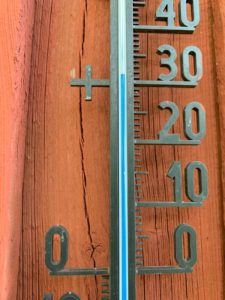Sources and useful links
Researchers show that we have responsibilities too.
In an opinion piece, 1944 scientists urge Swedish politicians to take the climate crisis seriously. But it also shows that it is not only politicians who have to make decisions, but it is also important that we as households make our own improvements in our lifestyles.
Everyone must help. Businesses do their part, politicians create the conditions by influencing conditions, and individuals can put pressure on both politicians and the market through their actions.
Read the abstract of the article here.(Possible paywall)
REKO rings.
Here you can read more about the organisation behind REKO rings, namely the Hushållningssällskapet. They have been mandated by the Swedish Board of Agriculture and the EU to support REKO rings throughout the country. However, the mandate expired on 24 October 2021. But the rings continue.
Read more about REKO. Opens in new window.
Measure your carbon footprint 1.
There are a number of studies and measurements that try to identify how the way we live and what we do affects our environment. This is usually about the climate footprint we make, i.e. how much greenhouse gases the activity creates. It’s usually too much. Sometimes we also talk about the footprint or imprint of the activity. This often involves thinking a little more broadly, i.e. not just greenhouse gases, but also what other resources are used, such as raw materials that are not recycled, metals that are dug up and so on.
A number of different sites have started to appear where you can measure yourself, you, what your carbon footprint is. It is a difficult art to calculate this and it is based on theoretical calculations. But I think it can be useful as an aid in what it is we need to change. Here’s a link where you can measure your own footprint.
This page is produced by WWF in collaboration with the Stockholm Environment Institute. A non-profit organisation for research and policy work.

![]()
Measure your carbon footprint 2
Here is a link to the Swedish Environmental Institute’s Climate Account, their measurement that they have prepared in cooperation with the Swedish Consumer Agency. You can also log in and save your results and compare your progress. Have I become a little more climate-smart this year? How do I behave?
The measurement will open in a new window.
The impact of consumption on sustainability.
The report focuses on the impact of private consumption on climate and footprint, i.e. sustainability. It identifies and proposes some different objectives for development. But it also points to the need for different targets for different countries and different parts of the world. It looks at possible targets for adjusting our lifestyle to reach the 1.5 degree target. It also identifies barriers and possible strategies to achieve this change.
This publication is a research report prepared by the Hot or Cool Institut in Berlin, a research centre. It is in English and a bit difficult to read in my opinion. It highlights why it is important that we change our behaviour and lifestyle. An area that has not been much researched. The report is funded by IGES – Institute for Global Environmental Strategies, Aalto University D-mat ltd, Finish Innovationfound (SITRA) and KR foundation.

